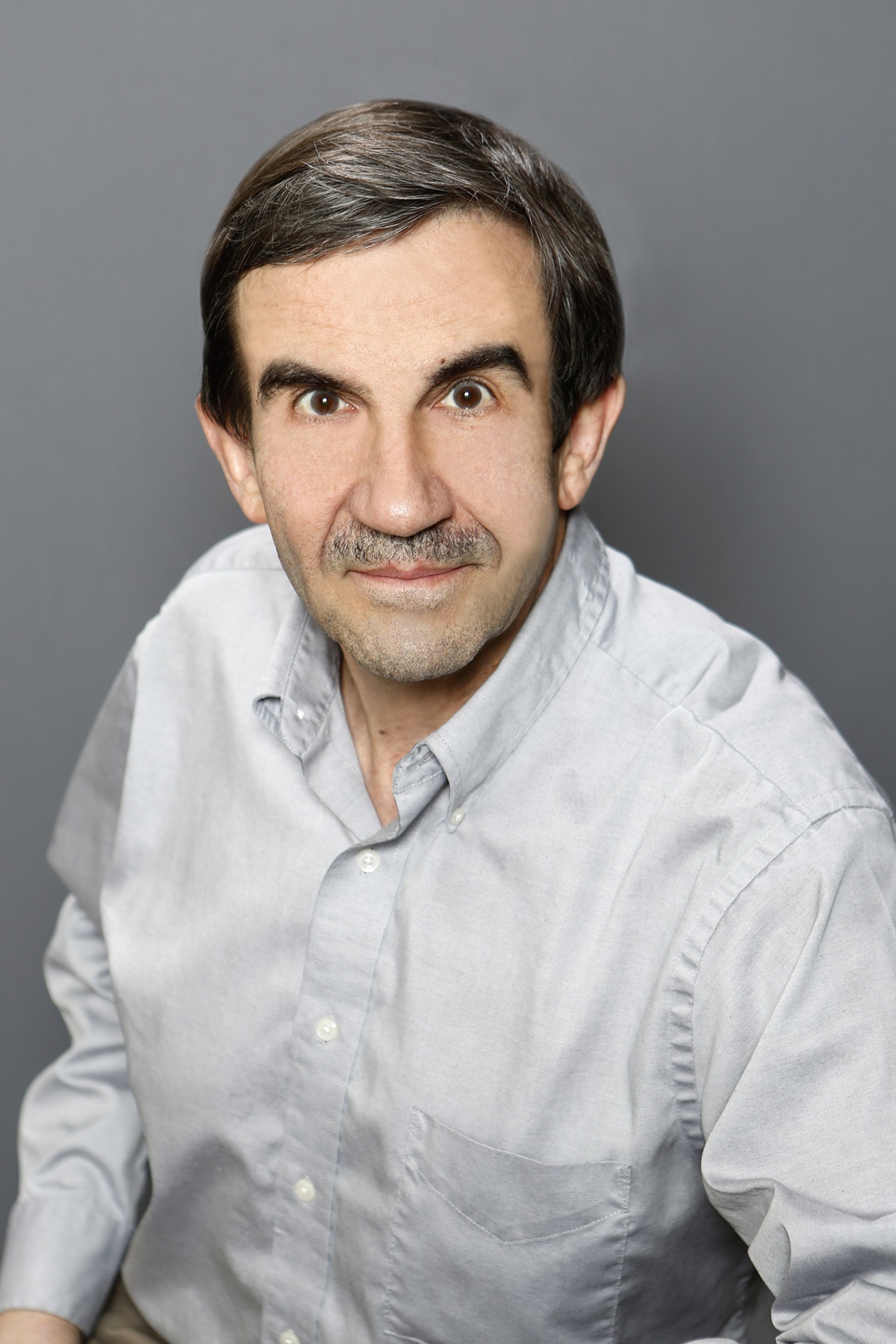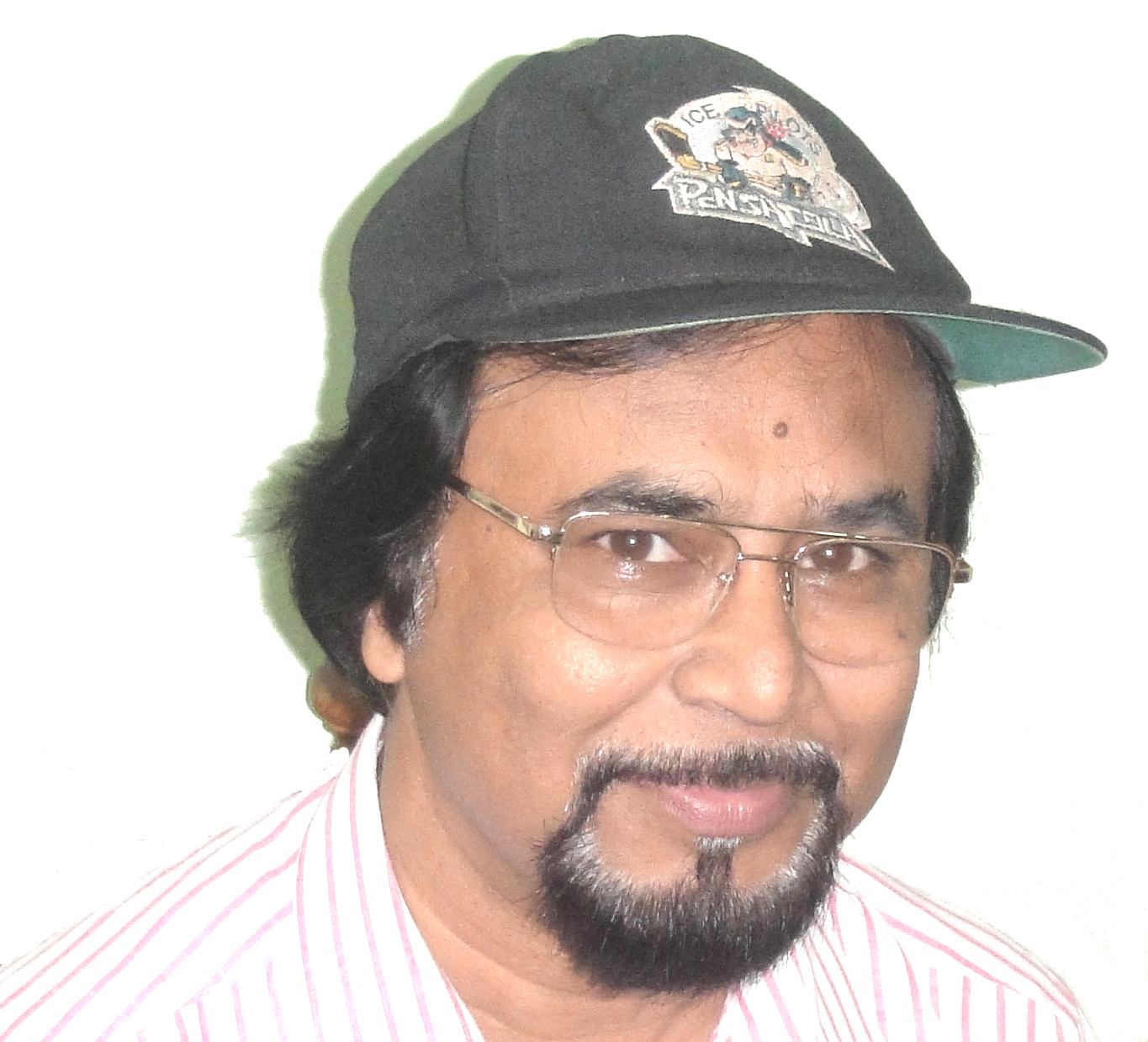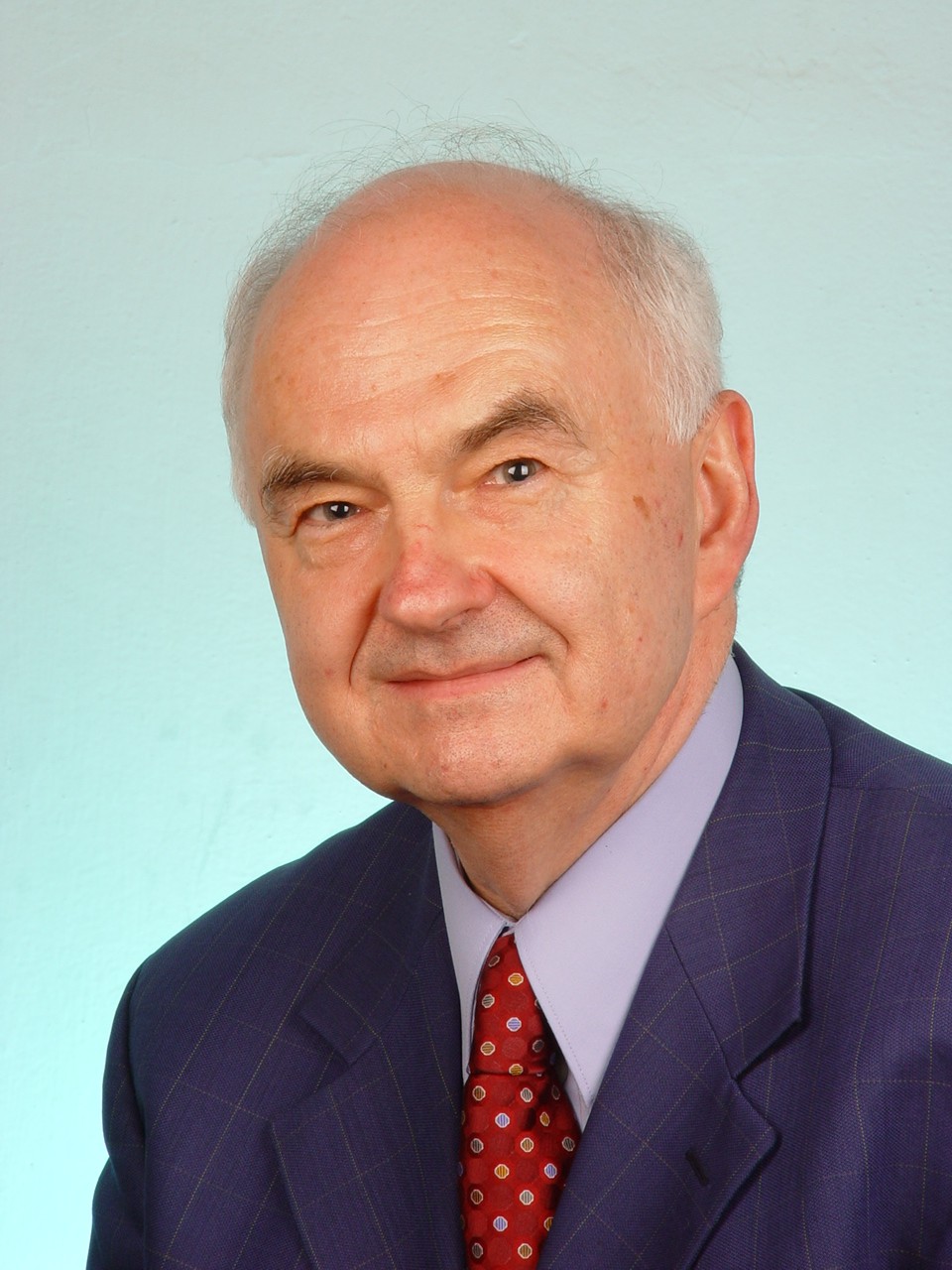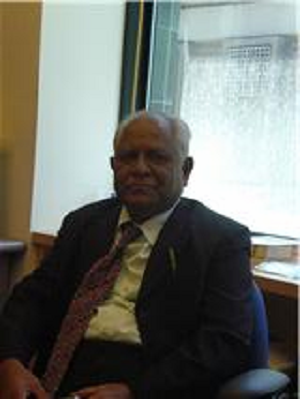
Vladik Kreinovich
University of Texas at El Paso
Texas, the U.S.
Bounded Rationality in Decision Making Under Uncertainty: Towards Optimal Granularity
Abstract. Starting from well-known studies by Kahneman and Tversky, researchers have found many examples when our decision making seems to be irrational. We show that this seemingly irrational decision making can be explained if we take into account that human abilities to process information are limited. As a result, instead of the exact values of different quantities, we operate with granules that contain these values. On several examples, we show that optimization under such granularity restriction indeed leads to observed human decision making. Thus, granularity helps explain seemingly irrational human decision making.
Similar arguments can be used to explain the success of heuristic techniques in expert decision making. We use these explanations to predict the quality of the resulting decisions. Finally, we explain how we can improve on the existing heuristic techniques by formulating and solving the corresponding optimization problems.
Vladik Kreinovich received his MS in Mathematics and Computer Science from St. Petersburg University, Russia, in 1974, and PhD from the Institute of Mathematics, Soviet Academy of Sciences, Novosibirsk, in 1979. From 1975 to 1980, he worked with the Soviet Academy of Sciences; during this time, he worked with the Special Astrophysical Observatory (focusing on the representation and processing of uncertainty in radioastronomy). For most of the 1980s, he worked on error estimation and intelligent information processing for the National Institute for Electrical Measuring Instruments, Russia. In 1989, he was a visiting scholar at Stanford University. Since 1990, he has worked in the Department of Computer Science at the University of Texas at El Paso. In addition, he has served as an invited professor in Paris (University of Paris VI), France; Hannover, Germany; Hong Kong; St. Petersburg, Russia; and Brazil.
His main interests are the representation and processing of uncertainty, especially interval computations and intelligent control. He has published six books, eighteen edited books, and more than 1,300 papers. Vladik is a member of the editorial board of the international journal Reliable Computing (formerly Interval Computations) and several other journals. In addition, he is the co-maintainer of the international Web site on interval computations http://www.cs.utep.edu/interval-comp
Vladik is Vice President for Publications of IEEE Systems, Man, and Cybernetics Society, Vice President for Publicity of the International Fuzzy Systems Association, Vice President of the European Society for Fuzzy Logic and Technology, Fellow of Mexican Society for Artificial Intelligence.
He:

Nikhil R. Pal
Indian Statistical Institute
Kolkata, India
Making Neural Networks Smart Enough to Say Don’t Know — The Open World Classification Problem
Abstract. In an open-world situation, a test data point may come from an unknown class and a trained network will fail. In a closed-world situation, a test data point may come from outside the “sampling window” and here the network should not make a decision, but it will. Sometimes, it may even assign an unrealistic class label. The statistical properties of one or more class may also change significantly with time and in this case also the network may fail.
These problems are different in nature, but all have one thing common: these problems arise when a network makes a decision where it should not. In the literature there are attempts to address each of these problems separately. Here we shall develop some methods that can address all the problems in a single framework. In this context, we shall briefly discuss some probabilistic methods and how the Extreme Value Theorem is used to address the open world classification problem. Then we shall present methods to model the complement world of the sampling window and use that to solve these problems – this approach can be viewed as making the network “smart” enough to say don’t know in the right context. Some theoretical results will also be highlighted. Does it mean that we have solved the problem? No! We consider it still an “open problem”. We shall mention some of the areas where further research focus is needed.
Nikhil R. Pal is a Professor in the Electronics and Communication Sciences Unit of the Indian Statistical Institute. His current research interest includes brain science, computational intelligence, machine learning and data mining.
He was the Editor-in-Chief of the IEEE Transactions on Fuzzy Systems for the period January 2005-December 2010. He has served/been serving on the editorial /advisory board/ steering committee of several journals including the International Journal of Approximate Reasoning, Applied Soft Computing, International Journal of Neural Systems, Fuzzy Sets and Systems, IEEE Transactions on Fuzzy Systems and the IEEE Transactions on Cybernetics.
He is a recipient of the 2015 IEEE Computational Intelligence Society (CIS) Fuzzy Systems Pioneer Award. He has given many plenary/keynote speeches in different premier international conferences in the area of computational intelligence. He is a Distinguished Lecturer of the IEEE CIS (2010–2012, 2016–2018) and was a member of the Administrative Committee of the IEEE CIS (2010–2012). He has served as the Vice-President for Publications of the IEEE CIS (2013–2016). He is serving as the President of the IEEE CIS (2018–2019).
He is a Fellow of the National Academy of Sciences of India, International Fuzzy Systems Association, The World Academy of Sciences, and a Fellow of the IEEE, USA.

Janusz Kacprzyk
Systems Research Institute, Polish Academy of Sciences
Warsaw, Poland
Towards More Realistic, Human-centric Decision Making Via Some Multiagent Paradigms
Abstract. We focus on multiagent systems which involve, as a key component, a human being, or artificial entity that exhibits some human behavior inspired characteristics, for instance cognitive biases. They can be considered as individuals acting just by following their intentions or goals, without paying an explicit attention to those of their fellow agents, and as a group of individuals who have to explicitly pay attention to the intentions, goals or choices of their fellow agents which may be different, even conflicting.
We basically deal with the human (or human inspired) agents dealt with from an economic perspective, i.e. decision making. More specifically, we follow the perspective of the agent-based computational economics which can be viewed as being concerned with the study of economic processes modeled as dynamic systems of interacting economic agents. A need to use economics based approaches, tools and techniques in the field of multiagent systems has been advocated for a long time because of an abundance of various kinds of models formalizing all kinds of decision making processes, attitudes, biases and behaviors that have been considered useful in multiagent contexts due to their obvious applications related to human interactions exemplified by negotiations, bidding, bargaining, etc.
In this talk we consider some aspects of economic (decision making) models that can be employed to make the agents (individuals and groups of individuals) involved in the multiagent systems considered better follow how the human beings behave and operate, notably in relation to some sophisticated types of rationality, emotions, and other feelings.
Basically, we emphasize that a human being is in general not a deliberate, relatively slow, decision maker driven by the traditional greedy and selfish utility maximization, but is rather an emotional, fast decision maker whose behavior is often motivated by a willingness to be fair to others, expecting a reciprocal reaction.
Janusz Kacprzyk graduated from Warsaw University of Technology, with M.S. in automatic control and computer science, defended the Ph.D. thesis in systems analysis in 1977, defended D.Sc. thesis in computer science in 1991. Professor of Computer Science at the Systems Research Institute, Polish Academy of Sciences, and Professor of Automatic Control at PIAP – Industrial Institute of Automation and Measurements; Honorary Professor of Mathematics, Yli Normal University, Xinjiang, China. Full Member of the Polish Academy of Sciences, Member of Academia Europaea and European Academy of Sciences and Arts. Foreign Member of the Spanish Royal Academy of Economic and Financial Sciences (RACEF), Bulgarian Academy of Sciences, and Finnish Society of Sciences and Letters. Fellow of IEEE, IET, IFSA, EurAI, and SMIA. Doctor honoris causa of 4 universities. Frequent visiting professor in the USA, Italy, UK, Mexico, China, and Austria. Main research interests: computation intelligence, notably fuzzy logic, decisions, optimization, control, data analysis and data mining, IT/ICT, mobile robotics, systems modeling etc.
Main awards: 2006 IEEE CIS Pioneer Award in Fuzzy Systems for fuzzy dynamic programming, 2006 Sixth Kaufmann Prize and Gold Medal for pioneering works on soft computing in economics and management, 2007 Pioneer Award of the Silicon Valley Section of IEEE CIS for granular computing and computing in words, IFSA 2013 Award for lifetime achievements in fuzzy systems and service to the fuzzy community, 2014 World Automation Congress Lifetime Award for contributions to soft computing. President of the Polish Operational and Systems Research Society and Past President of International Fuzzy Systems Association. Longtime member of IEEE CIS Adcom, notably 2016 Chair of its Award Committee.

Ashok Deshpande
College of Engineering
Pune, India
Application of Zadeh Deshpande Formalism in Educational Data Mining
Abstract. Dealing with uncertainty has been one of the objectives of scientific research over a period of time. The formalisms based on statistical mechanics have embraced two-valued logic based probability theory wherein random variable play a pivotal role. The standard probability theory is not designed to deal with imprecise probabilities or Z-probabilities which pervade real-world uncertainties. Fuzzy set theory via Computing with Words is the other way of modeling uncertainty due to imprecision/fuzziness. Fuzzy logic based Zadeh Deshpande formalism is a departure from traditional Mamdani or Takagi-Sugeno inference system. The formalism is successfully applied in environment management systems.
This presentation refers to application of the method to Education Data Mining with special reference to students’ academic performance. The concept of Degree of Certainty is the heart of this method. For example: performance of a student is very poor with very high degree of certainty.
Ashok Deshpande, Founding Chair of the Berkeley Initiative in Soft Computing (BISC)–Special Interest Group (SIG)–Environment Management Systems (EMS), holds a PhD degree in Engineering and Technology. Prof. Deshpande was Deputy Director of the National Environmental Engineering Research Institute (NEERI) of India. He is a Visiting Professor in Indian Institute of Technology (Mumbai, India), Adjunct Professor at the College of Engineering (Pune, India), and at the National Institute of Technology (Silchar, India).
Prof. Deshpande has over 4 decades of R&D experience and has over 120 publications in the journals of international repute and conferences. More importantly, Prof. Lotfi Zadeh, the founder of fuzzy logic, after listening to many seminar talks, asked Prof. Deshpande to be the Chair of (BISC)-(SIG)-(EMS).
In the past, Prof. Deshpande was World Health Organization Advisor, Commonwealth Science Council Resource Scientist, World Bank Project Director for the studies on Probabilistic Risk Assessment for Chemical Process industry. He also assisted Danish International Development Authority (DANIDA) as a Project Advisor. Prof. Deshpande was invited by the International Atomic Energy Agency (IAEA) as an expert for organizing a Training Program at Nuclear Technology Development Center (CDTN), Brazil, on Fuzzy logic with applications.
Prof. Deshpande delivered seminar talks in over 20 countries and organized workshop on Foundation of Fuzzy Sets and Fuzzy logic in over 20 countries. Prof. Deshpande’s has a passion and mission to propagate the use of fuzzy logic nationally and internationally. At present, all his doctoral students work only on fuzzy logic related topics.
Prof. Deshpande is deeply interested in Indian classical music.

Vadim Stefanuk
Institute for Information Transmission Problems of RAS
Peoples’ Friendship University of Russia
Moscow, Russia
Fuzzy Set Theory is not Fuzzy
Abstract. In the excellent Fuzzy Set theory created by Professor Lotfy A. Zadeh there are some points that still requires further study. For example, there is no clear idea how to measure fuzzy membership functions in a practical setting. Indeed, the triangular and especially trapezoid forms used for memberships in the past, for some time turned me away from the field as something being too primitive and having no justification.
However, one day I started to think what shapes would be more advisable. And probably some other scientists paid attention to the problems of fuzzy shapes and fuzzy values. The lack of measuring process in Fuzzy Set theory can make the impression that this fundamental theory of Fuzzy Sets is a bit fuzzy by itself.
During the conference in Baku city in the year 2012 we discuss the problem of measuring in a brief meeting with Prof. Ronald Yager. He also founded this question to be very important and the talk with him after my presentation stimulated my further research in this area. During the conference in Berkeley in the year 2014 I was fascinated with Prof. Zadeh’s obvious interest to my idea of using finite automata for learning in a Fuzzy environment.
Before going further, I should stress that a number of great scientists in Ukraine turned their attention to the practical problems. The organizer of the present meeting Dr. Dan Tavrov came from the seminars chaired by a prominent scientist, Prof. T. Taran from Kiev Polytechnic. Tatyana Taran, being excellent mathematician, tried to discover new mathematical means for description of various intelligent phenomena. Her regular seminars in Kiev were very important and maybe my research was influenced with her sincere scientific enthusiasm.
For measuring we proposed to apply a game of finite automata that were able to make an optimal choice among several alternatives. In principle, with such a game it might be possible to measure any fuzzy values, however with a predefined precision.
For the game we first applied linear tactic automaton that was proposed by Mikhail Tsetlin from Moscow as a construction with optimal behavior in a random environment. However, our study showed that its asymptotical optimality is achieved under certain restriction concerning the fuzzy environment. Theoretically it was shown that the mentioned automata allow to measure fuzzy values only when fuzzy memberships exceed 0.5.
To overcome this restriction in present paper we decided to apply architecture, referred to as trusting automaton. This automaton architecture was proposed many years ago by biophysicist Valentin Krinsky from Pushchino Biophysics (Russia). Rather cumbersome mathematical analyses showed us that the trusting automata do have the required asymptotic optimality property for arbitrary values of memberships. Hence, the trusting automata may be used for measuring of arbitrary membership values, by applying game procedure proposed before.
Actually our game procedure is reminiscent to some extent the process of collecting statistics in Probability Theory. We have expected this positive result and planned to demonstrate it one day to Lotfy Zadeh. No doubt that Great Professor would consider our findings in his typically friendly manner and would propose some next directions for the approach.
Vadim Stefanuk was Born in Moscow on July 13, 1939. Graduated from Moscow State University in 1962, defended PhD thesis titled “Collective automata behavior and the problem of stable local control in communication systems” (1968) and ScD thesis titled “Local organization of expedient behavior of technical systems” (1990).
Leading Researcher in the Institute for Information Transmission Problems of Russian Academy of Science. Professor in Russian University for People’s Friendship.
Academician of Russian Academy for Natural Sciences and International Academy of Informatics.
Member of Directorship of World Organisation of Systems and Cybernetics (WOSC), Fellow of European Coordinating Committee for Artificial Intelligence (EurAi), Vice-President of Russian Association for Artificial Intelligence (RAAI).
Author of over 250 books, reports, and papers published in Russian and in English by international journals and conference proceedings.
Lecturer in Artificial Intelligence, Distributed Systems, Learning and Tutoring, Mobile Communication.
Areas of interest include Collective Behavior, Collectives of Radio Stations, Power Control, Learning and Tutoring, Artificial Intelligence: Fuzzy Systems, Axiomatic Approaches, Dynamic Intelligence, Creative Problem Solving, Applied Semiotics, Algebraic Approach to Artificial Intelligence, Information Safety, etc.